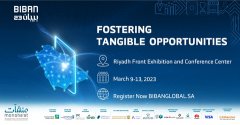EAGLE-1 satellite for ESA’s end-to-end Quantum Key Distribution system to launch on the Vega C rocket from Europe’s Spaceport in French Guiana in 2024
PARIS & LUXEMBOURG--(BUSINESS WIRE)--The EAGLE-1 satellite, which will support the end-to-end secure Quantum Key Distribution (QKD) system for Europe, will be launched for SES by Arianespace on a Vega C rocket from French Guiana as early as Q4 2024. The satellite will be placed into Low Earth Orbit (LEO). The EAGLE-1 project comprising satellite and ground infrastructure, is developed by SES and its consortium of 20 European partners, with the European Space Agency (ESA) and the European Commission support.
Under the recently-signed agreement with ESA, SES and its partners will design, develop, launch and operate a satellite-based end-to-end QKD system for the purpose of testing and validating space-based secure transmission of cryptographic keys. The first European sovereign space-based QKD system will include the dedicated low earth orbit (LEO) EAGLE-1 satellite and state-of-the-art QKD operations centre in Luxembourg. In the scope of EuroQCI, the EAGLE-1 satellite will enable early access, validation, and integration of space-based QKD for EU Member States.
“Building the EAGLE-1 end-to-end system for secure data transmission and validating the long-distance Quantum Key Distribution technology is an innovative project that will benefit the EU Member States,” said Ruy Pinto, Chief Technology Officer at SES. “We have been working with Arianespace for decades to deliver our satellites into space and are delighted for them to be onboard to launch the EAGLE-1 satellite into orbit.”
“We are delighted and honored by this renewed mark of confidence from the leading global content connectivity service provider SES,” noted Marino Fragnito, Director of Arianespace’s Vega business unit. “Over the last 38 years, Arianespace has carried out 42 launches for its longstanding partner, and Vega C will now continue this successful track record. It is a great honor for us to support our customer’s ambitions and to be part of this mission that aims at implementing Europe’s satellite-enabled cybersecurity technology.”
Following the launch, the EAGLE-1 satellite will complete three years of in-orbit mission supported by the European Commission. During this operational phase, the satellite will allow European Union governments and institutions, as well as critical business sectors, early access to long-distance QKD that would path the way towards an EU constellation enabling ultra-secure data transmissions.
The EAGLE-1 project is co-funded by the ESA contribution of Germany, Luxembourg, Austria, Italy, the Netherlands, Switzerland, Belgium, and the Czech Republic under ARTES, as well as the European Commission through Horizon Europe.
Vega C, the new European light launcher successfully passed its inaugural flight on July 13 and now enters its operational phase under the responsibility of Arianespace. With this contract, Vega C backlog includes over 40 satellites contracts.
Vega C development program has been managed by ESA with 12 Member States of the Agency. Avio Spa (Colleferro, Italy) is the industrial prime of the Vega launch system. Vega C has been upgraded with more powerful first and second stage Solid Rocket Motors and with a larger fairing, which significantly increases payload mass and double allowable volume as compared to Vega. The launcher also better meets the specific needs of small spacecrafts, thanks to its improved SSMS dispenser and to its AVUM+ that allows seven re-ignitions instead of five. Vega C can thus deliver to three different separation orbits for its multiple payloads within the same mission, instead of the two previously possible with Vega.
For more information, visit the EAGLE-1 Newsroom
Follow SES on:
Twitter | Facebook | YouTube | LinkedIn | Instagram
Read our Blogs >
Visit the Media Gallery >
Follow Arianespace on:
Twitter | YouTube | LinkedIn | Instagram
About ESA
The European Space Agency (ESA) is Europe’s gateway to space. ESA is an intergovernmental organisation, created in 1975, with the mission to shape the development of Europe’s space capability and ensure that investment in space delivers benefits to the citizens of Europe and the world. For more information see www.esa.int
The Telecommunications and Integrated Applications Directorate (TIA) supports innovation to boost the competitiveness of European industry in the global space market. This involves a wide range of activities, from space-based technology, systems, products for telecommunications development to the down-to-Earth application of space-based services. It also calls for engagement with a wide range of industrial, academic, and institutional partners. For more information, please visit our website: https://artes.esa.int/
About SES
SES has a bold vision to deliver amazing experiences everywhere on earth by distributing the highest quality video content and providing seamless connectivity around the world. As the leader in global content connectivity solutions, SES operates the world’s only multi-orbit constellation of satellites with the unique combination of global coverage and high performance, including the commercially-proven, low-latency Medium Earth Orbit O3b system. By leveraging a vast and intelligent, cloud-enabled network, SES is able to deliver high-quality connectivity solutions anywhere on land, at sea or in the air, and is a trusted partner to the world’s leading telecommunications companies, mobile network operators, governments, connectivity and cloud service providers, broadcasters, video platform operators and content owners. SES’s video network carries ~8,000 channels and has an unparalleled reach of 366 million households, delivering managed media services for both linear and non-linear content. The company is listed on Paris and Luxembourg stock exchanges (Ticker: SESG). Further information is available at: www.ses.com.
About Arianespace
Arianespace uses Space to make life better on Earth by providing launch services for all types of satellites into all orbits. It has orbited over 1,100 satellites since 1980. Arianespace is responsible for operating the new-generation Ariane 6 and Vega C launchers, developed by ESA, with respectively ArianeGroup and Avio as industrial primes. Arianespace is headquartered in Evry, near Paris, and has a technical facility at the Guiana Space Center in French Guiana, plus local offices in Washington, D.C., Tokyo and Singapore. Arianespace is a subsidiary of ArianeGroup, which holds 74% of its share capital, with the balance held by 15 other shareholders from the Ariane and Vega European launcher industry, and ESA and Cnes as censors.
www.arianespace.com








